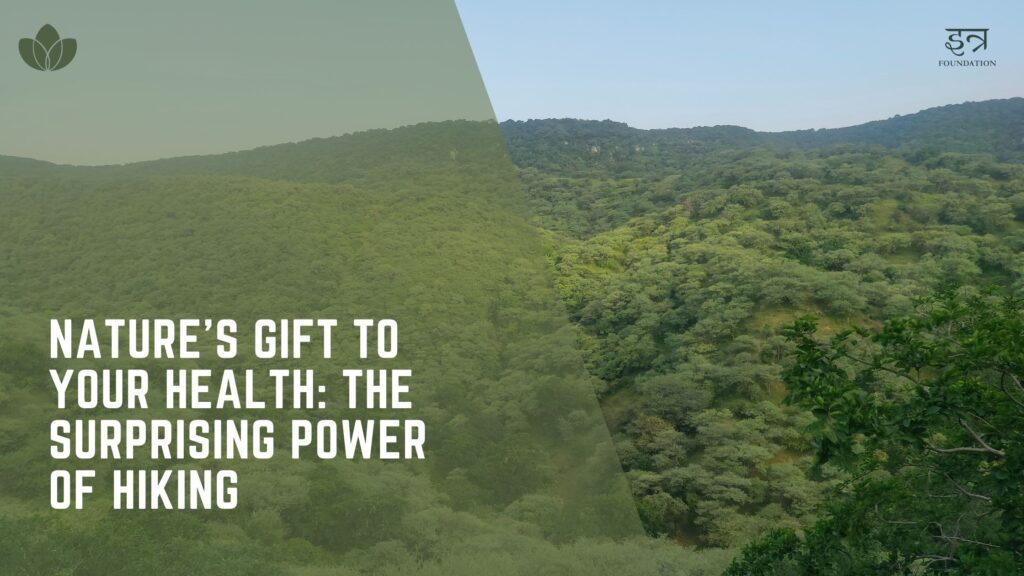Hi everyone, I am Priya and a passionate eco-camper besides nature lover and IT professional. I feel if you are in a job surrounded by machines which I had been always, u need to relax and recharge time to time to be more productive. Am proud that our beautiful country offers us various relaxing landscapes that can help us relax without having to travel long distances. My favorite vacation is camping in nature, connecting with nature without leaving any negative impact to nature, and this is called “Eco-Camping”. I have done a couple of eco-camping/Treks in Kilimanjaro (in Tanzania’s highest single standing peak) and in Himalayas. I must say these were beautiful experiences and am always looking forward to more of such refreshing holidays!
Let’s talk on this topic in more details today, to ensure more and more friends get the awareness of eco-camping and can use this activity as their stress buster in this mechanical world.

What are Eco-Camps?
As of recent you may have heard the term ‘Eco’ being used around more often, and it’s no surprise really. Everyone in the world is aware of the fact that severe and rapid industrialization has caused many irreversible changes to the global climate and hence people are trying to take all possible steps to reduce the amount of pollution that’s in their control to save earth and its environment for better living. These days we all are well aware of many practices that we can use to protect environment, and one of those is ‘Eco-camping’, since camping has become one of the major relaxing vacation for many of us.
The term “eco camping” refers to ecologically responsible camping. This includes where you go, what you do, and how you leave the campsite when you are finished. Eco camping is also referred to as ‘zero waste camping’, ‘wild camping’ or ‘sustainable camping.’
The eco friendly campings are connected to the fundamental principles of “Leave No Trace” .
Outdoor Campings trending all over the globe!
When it comes to planning a trip outdoors, camping offers some of the most affordable options in addition to easy planning with not much prior arrangements/bookings. Not only that, but you’re closer to nature from the moment you wake up to when you crash inside your camps. Camping is proven to have an impact on reducing stress and contributes to emotional and physical health. Beings surrounded with nature makes you active and rejuvenated. This is one of the major reasons camping continues to be so popular and fundamental component of an outdoor liefstyle. Some campers even joke that stress can be caused by not camping enough. Who wouldn’t want to camp when it offers an opportunity to be entrenched in nature with easy access and more time to be able to explore in nature. With access to exciting new camping accommodations, nearly all Millennials and Gen Xers are said to be keen to try new ways to camp. More specifically, Millennials are interested in experiencing both back-country camping, while Gen X seeks more unique camping accommodations, along with increased access to Wi-Fi and cell service, also called Glamping! While camping is a way to get away from it all, people still want to have the option to stay connected.

Now that we know why camping is trending up now everywhere its important that there is an awareness of how to turn your camping to an eco-camping with minimal impact to the environment while getting the maximum from the environment and nature around you. Eco-camping doesn’t have to be at miles distance to fly to, or take a train, it can be close to your home or in country side, even in the backyard of your house.
Benefits of Eco-camps in promoting sustainable nature connect.
There are numerous benefits of eco camping for the environment, wildlife, and for yourself too! Leaving your chosen campsite as you found it (or in an even better condition), means more people can get outside and enjoy these beautiful places/nature, without being hesitant thinking these campsites dirty or not hygenically clean.
As mentioned earlier, Over the last few years, more people than ever before have discovered the joys of outdoor adventure, which means its even more important to raise the awareness of sustainable nature connect. This will ensure that we have this trend always increasing and people will be more fit and healthy as they continue to connect with nature thats left clean by our friends who have used that space earlier. Underlining few benefits of Eco-camping :
- Environmental Benefits
- Promotes environmental conservation
I believe that if people get outdoors into beautiful places they’ll gain a better understanding of why we need to protect them. If you explore beautiful places and see first hand what’s so special about them and the wildlife that lives there, you’ll be far more likely to want to help protect them.
And what better way to fall in love with the outdoors than camping in beautiful places? Eco camping is all about this.
- Reduces greenhouse gases Camping typically has a much lower footprint than other accommodation options when you travel; especially when you are eco camping. A lot of camping is done nearer home without a flight (fewer travel emissions) and uses not much (if any) power. That second benefit is also a great mental break from social media and the need to feel constantly connected.
- Reduces your impact on the environment
Over the last few years, more people than ever before have discovered the joys of outdoor adventure. And that’s just great, as connecting with nature is directly proportional to improving your well being.
What’s not great, is that this has led to noticeable increases in waste (human and non-human) being left in the wild, on animals being harassed and eventually shot by conservation officers as they become too habituated to humans. Eco camping takes all this into account and promotes practices, such as Leave No Trace which helps reduce our impact on the environment.
Health Benefits

- Immerse yourself in nature
There is a lot of research coming out about the power of nature for healing and mental health. I for one always feel better and rejuvenated when I spend time outdoors. Going outdoors, or for camping is one of my favorite ways to spend the weekend.
- Thinking time
Alone Camping sometimes gives much needed time to think and contemplate life. It’s been proven spending time alone is healthier for you from a psychological perspective, so use your green camping experience to not only make the world a better place, but also bolster and refresh your own mind.
- Freedom from commercial needs
Eco-camping helps you break from the shackles of consumerism. It is a healthy reminder of how you are in fact able to live independently of commercial needs.
- Watching Wildlife in Wild
Seeing wildlife provokes a deep sense of well-being that can lead to psychological health benefits. Our senses are heightened as we move into a state of flow where our thoughts and actions focus on spotting, watching, identifying, recording, and appreciating the wildlife around us. Being immersed in nature and among animals in the wild helps us step away from our day-to-day worries, making us feel more relaxed.
For instance, Bird-watching is best for kids to connect to wild life in safe way. Listening to birdsong can help restore attention and decrease stress. In fact, birdsong has been found to be the natural sound most commonly linked to stress recovery.
- Socio -Economic Benefits
- More economical vacation than normal urban vacation
We all like to try and squeeze every penny we can from life. By choosing to head off on a green camping holiday you give yourself a fantastic chance of saving some cash.
It goes without saying that bunking in the wilderness is going to be considerably cheaper than paying extortionate prices for a hotel room every night. As well as this, you’ll also save funds on things like fuel and food – with there being no need to jet about or eat at expensive restaurants.
While nothing in life comes free (you might have to pay some fees for using the land), all expenses will be considerably less when camping in general.
- Eco-camps provides opportunities to local community.
The restaurants around use local produce supplied by nearby providers. These locally-grown and produced products provide business opportunities to the region’s farmers and suppliers, while also offering fresher flavors and lowering the food’s carbon footprint.
- Eco-camps contributes to meaningful projects.
The local community volunteers help keep the popular areas and hiking trails clean and free of trash, helping to provide a more enjoyable outdoor travel experience and protect the ecosystem. EcoCamp staff also gets involved in project pertaining to trail restoration, reforestation and giving opportunities to children from the region.
- Eco-camps help tourists/campers learn and respect local culture.
Eco-campers with ample time being in these natural suburb spaces spend a lot of time with the local community to understand their culture, living style, source of livelihood. For instance, while my eco-camping / hiking trips, I learnt a lot about Tanzanian people who were supporting us through out the trek and camping time. This also gives them a feel of respect from eco-campers.
Eco-camps helps protects the community natural spaces.
Eco-camps generates revenue, and local communities use this revenue to invest in the natural resources that attract campers. For instance, forests that are at risk of deforestation will be saved, with the profits from eco-camping that will encourage local lodge owners to invest in more forested lands and enact conservation efforts to maintain forest cover. The revenue generated from eco-camps can be used to manage and conserve wildlife species and their habitat, community development, conservation education, and skills development of local people. This helps in maintaining sustainability standards of eco-camps.
In order to make such campings sustainable year after year, its important to keep these camps impact free from our doings while our stay there. Here are a few guidelines / principles that eco-campers need to follow :
Practices to keep Eco-Camping Sustainable by camping eco-consciously (Leave No Trace camping) :
- Prepare and Plan Your Trip Ahead of Time
Well planned and prepared camps enables a camper to have a safe and enjoyable vacation while reducing their impact on the environment. Carefully plan you food while camping to reduce packaging and cuts down on trash. Stoves can be used to cook all meals for big groups, so a campfire isn’t needed. A stove won’t leave any ash or burned wood behind.
- Camp and Travel on Sturdy Surfaces
The purpose of outdoor travel is for the camper to traverse through natural regions without causing harm to the land, waterways, fauna and flora. Camp and cook on durable surfaces, including rock, sand, gravel, ice and snow.
- Leave What You Find in Nature As-Is
Leave artifacts, plants, rocks, trees and other interesting things on your campground as is, where you find them, these might be habitats of some fauna/flora. Do not dig holes for tents or build lean-tos, tables, chairs, or anything else. You should ensure that there should be no sign of your camping activity after you leave the area.
- Minimize Campfire Impacts
If you want to build a fire, camp in a place with approved fire pits and lots of wood already gathered in piles on the ground. A fire ring is the best spot to start a fire. Use gear like a camping stove or fire pan as alternatives to a traditional campfire. These devices are safer, can be easily controlled and will leave zero trace. There should be minimal or zero signs that a fire was built after you leave the campsite.
- Respect Wildlife
Do not disturb wildlife or plants. Travel quietly and do not pursue, feed or startle the animals. Observe wildlife from a distance so they are not scared or forced to flee. Large groups often cause more damage to the environment and can disturb wildlife so keep your group small.
- Use of renewable energy resources
Respect for Mother Nature and use eco-friendly camping gears. Have you heard of solar tents? This is a new movement in sustainable camping that also turns it into glamping. A solar tent uses solar fabric that catches the sun’s energy. It also comes with wireless charging pouches to let you charge your devices through magnetic induction.
- Waste Management
- TRASH: Pack up and carry out all trash before leaving your campsite.
- HUMAN WASTE:Carry out excrement in an EPA-approved, commercially produced pack-out system or bury it in a properly constructed cat hole or latrine.
- CAT HOLES: Human waste is often disposed of in cat holes. Cat holes should be 200 feet from water, footpaths, and camp.
- TOILET PAPER: Use toilet paper sparingly and only brands that are plain, white, and unscented. Toilet paper must be discarded by burying it deeply in a cat hole or putting it in plastic bags to be thrown away.
- Local sourcing and supporting local communities
This will not only reduce carbon footprint of transporting different camping needs from far distances, but also create employment opportunties to the local communities.
Future of Eco-camps!
The concept of eco-friendly travel and tourism is fast catching up in India. A large number of people are aware of it and choosing eco-friendly and sustainable destinations, even for a vacation now. Sustainable travel is the future of sustainability-conscious adventurers. Hence, eco-camps and treks are now a future of India, where people take conscious decisions of camping where there is Zero waste and ‘leave no trace’ concept.
Eco-Camps in India Reach More Children Than Ever! Each year hundreds of children in Ladakh and Spiti in India are inspired to work towards conservation through eco-camps conducted by the Snow Leopard Trust’s India partner, Nature Conservation Foundation.
The trekking companies in India for instance India Hikes (which I used for my Himalayan term) has started the initiative of ‘Green Trails’. It’s an initiative to leave mountains better than its originally found by a trekker, Sustainability has always been at the heart of everything they do. They want everyone to trek in a way where they not only leave no trace, but they leave mountains better than they found them.
The most visible impact of the Green Trails initiative has been the removal of over 100 tonnes of litter from trekking trails. Everyday, their team, including their trekkers, are cleaning up trails with the help of our iconic Eco bags. While picking up litter is easy, they further do the most difficult work — they segregate the waste for the right way of disposal.
But Green Trails goes much beyond cleaning up of trails. Indiahikes works with sustainability at its core, whether it is in how they source our equipment, what they cook, how they buy provisions, or how they manage human waste at high altitudes. The Golden 6 Practices below will give you a clearer picture of the far-reaching impact of Green Trails.
Golden 1: Green Sweep
Golden 2: Segregation At Source
Golden 3: Food Composting
Golden 4: Bio Toilets
Golden 5: Save Water
Golden 6: Save Energy
I do believe if we all follow these principles, these eco-camps will be sustainable adventure for many more people in coming future that’s proven to be a healthy break in this stressful world. Its not only because we’ll have a relaxing vacation, but this will also help us get aware of how important it is too protect and take care of our nature – flora and fauna which plays an important role in our lives.


